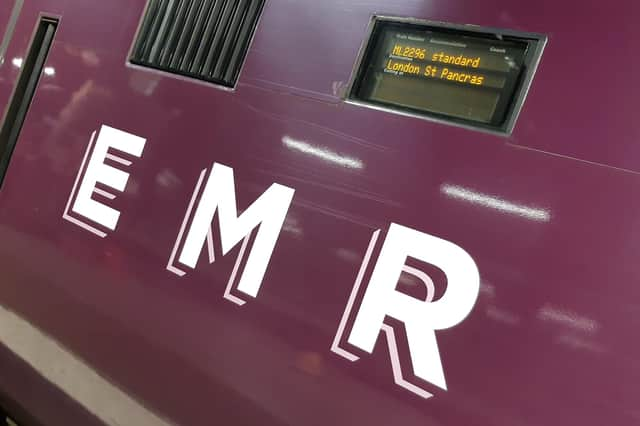What East Midlands Railway drivers’ strike vote means for Corby, Kettering and Wellingborough train passengers


Train drivers on East Midlands Railway have overwhelmingly voted to join striking workers at 12 other operators and will bring services to a standstill through Corby, Kettering and Wellingborough on October 5.
A whopping 84 per cent of drivers who voted said they were prepared to take part in strike action after a ballot over a pay dispute.
Advertisement
Hide AdAdvertisement
Hide AdAslef union leaders announced two further days of action next month after postponing 24-hour walkouts planned for September during the period of national mourning following the death of Queen Elizabeth II.
The first, on Saturday, October 1, falls during the notice period unions must give following ballots for industrial action — although a separate strike by rail workers union RMT will likely mean only a skeleton service between London and the Midlands on that day.
East Midlands Railways were able to continue running services during previous Aslef strikes on July 30 and August 13. But the action on October 5 will force the cancellation of all trains on the network.
Early-morning services on Thursday, October 6, will also be impacted as a knock-on effect of the action.
Advertisement
Hide AdAdvertisement
Hide AdAslef general secretary, Mick Whelan, insisted drivers have not had a pay rise since 2019, adding: ‘We don’t want to go on strike – withdrawing your labour is always a last resort for this trade union.
“But the train companies have been determined to force our hand.
“They are telling train drivers to take a real terms pay cut. With inflation now running at 12.3 per cent – and set, it is said, to go higher – these companies are saying that drivers should be prepared to work just as hard, for just as long, but for considerably less.
“The companies with whom we are in dispute have not offered us a penny. It is outrageous that they expect us to put up with a real terms pay cut for a third year in a row.
Advertisement
Hide AdAdvertisement
Hide Ad“That’s why we are going on strike. To persuade the companies to negotiate properly with us. Not to run up and say ‘our hands are tied and the government will not allow us to offer you an increase’.
“Train drivers kept Britain moving – key workers and goods around the country – throughout the pandemic and we deserve to be treated better than this.
"That’s why we are calling on the companies – which are making big profits, and paying their chief executives enormous salaries and bonuses – to make a pay offer to our members to keep up with the rise in the cost of living.”
RMT leaders announced on Thursday (September 22) that another one-day walkout is planned by its members on October 8.
Advertisement
Hide AdAdvertisement
Hide AdThe walkouts are the latest in a series of stoppages by rail workers through the summer in a long and bitter dispute on pay and modernisation
A statement from the Rail Delivery Group, representing train operators, said: “Revenue is still around 80 per cent of pre-pandemic levels. No business can survive that scale of upheaval without implementing change.
“These strikes will once again hugely inconvenience the very passengers the industry needs to support its recovery from the ongoing impact of the pandemic.”
